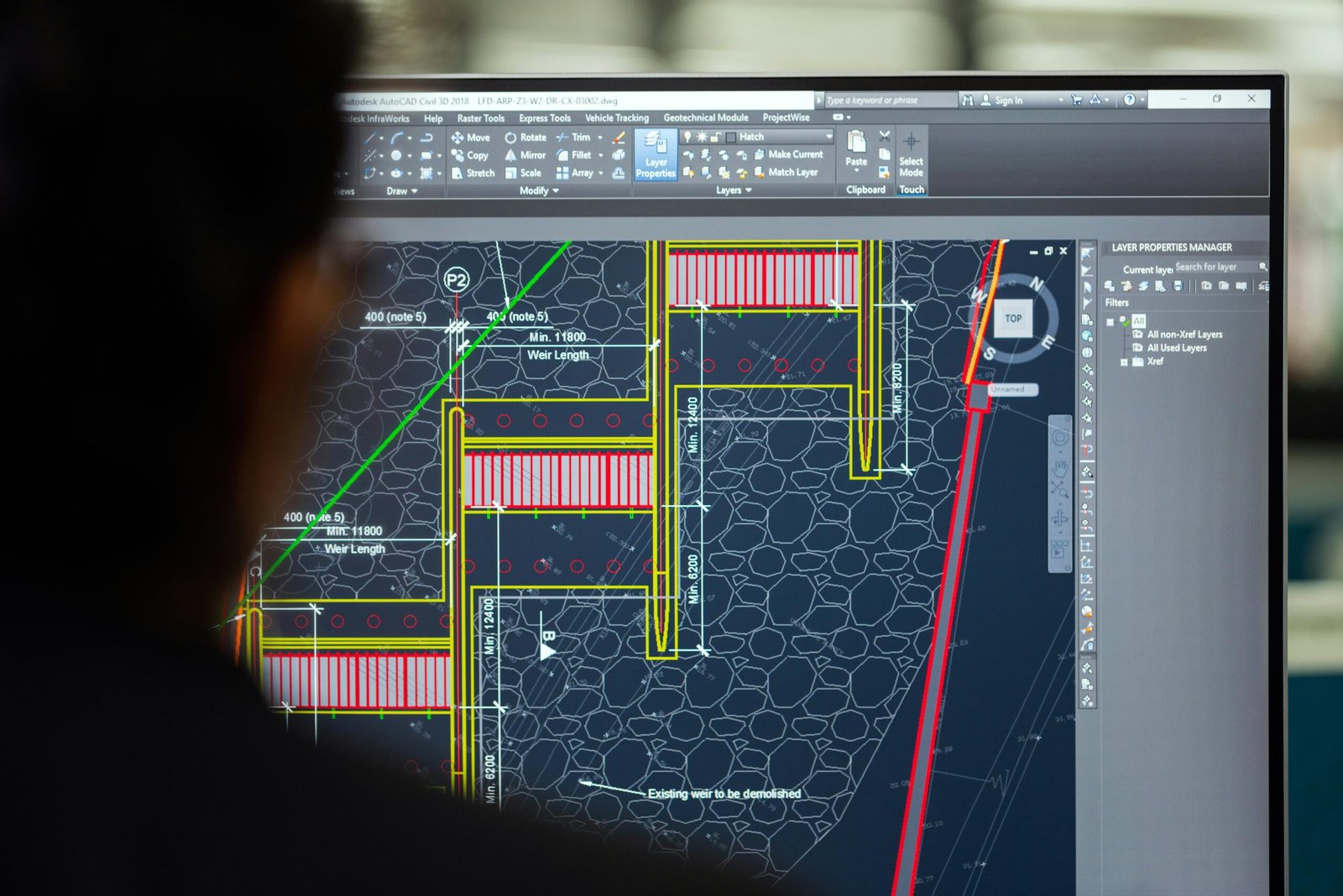Introduction:
Civil engineering, often referred to as the backbone of modern infrastructure, is a dynamic and rewarding field that involves designing, planning, and overseeing the construction and maintenance of various structures and systems. If you are intrigued by the prospect of shaping the physical world around us, a career as a civil engineer might be the perfect fit. In this comprehensive guide, we will explore the educational journey, necessary skills, practical experiences, and professional development steps involved in becoming a successful civil engineer.
Educational Journey:
1. Undergraduate Education:
The journey to becoming a civil engineer typically begins with a bachelor’s degree in civil engineering or a related field. Undergraduate programs provide a solid foundation in fundamental engineering principles, mathematics, physics, and introductory courses in civil engineering disciplines.
2. Selecting a Specialization:
Civil engineering encompasses various specializations, including structural engineering, transportation engineering, geotechnical engineering, environmental engineering, and more. During undergraduate studies, students have the opportunity to explore these specializations and choose the one that aligns with their interests and career goals.
3. Internships and Co-op Programs:
Gaining practical experience through internships or co-op programs during undergraduate studies is invaluable. Working with experienced engineers in real-world projects provides insights into the industry, enhances problem-solving skills, and establishes connections that can be beneficial for future career opportunities.
Professional Skills Development:
4. Technical Skills:
Civil engineers need a strong grasp of technical skills, including proficiency in engineering software, drafting tools, and computer-aided design (CAD). Mastering programs like AutoCAD, Revit, and structural analysis software is essential for effective design and project management.
5. Problem-Solving and Analytical Skills:
The ability to analyze complex problems and develop innovative solutions is a cornerstone of civil engineering. Engineers must consider various factors, such as environmental impact, cost, and safety, when designing and implementing projects.
6. Communication Skills:
Civil engineers frequently collaborate with multidisciplinary teams, clients, and government agencies. Clear communication, both written and verbal, is crucial for conveying technical information, presenting project proposals, and ensuring effective collaboration.
7. Project Management:
Civil engineers often take on project management roles, requiring skills in planning, budgeting, and resource allocation. Understanding project management methodologies and tools is essential for successful project delivery.
Licensing and Certification:
8. EIT (Engineer-in-Training) Certification:
After completing a bachelor’s degree, aspiring civil engineers can pursue Engineer-in-Training (EIT) certification. This certification is the initial step towards obtaining a Professional Engineer (PE) license. EIT status signifies a commitment to the engineering profession and is often a prerequisite for entry-level positions.
9. PE (Professional Engineer) License:
To advance in the field and take on leadership roles, many civil engineers pursue a PE license. Requirements vary by region, but obtaining a PE license generally involves completing a master’s degree in engineering, gaining professional experience, and passing the PE exam.
Practical Experience:
10. Entry-Level Positions:
After completing undergraduate studies and obtaining EIT certification, aspiring civil engineers typically start their careers in entry-level positions. These roles may involve working as design engineers, project coordinators, or field engineers, gaining hands-on experience in various aspects of civil engineering projects.
11. Advanced Degrees (Optional):
While not always required, obtaining an advanced degree, such as a master’s in civil engineering or a related field, can enhance career prospects, especially for those interested in research, academia, or specialized roles. Advanced degrees can also contribute to eligibility for PE licensure.
12. Specialized Certifications (Optional):
Depending on their chosen specialization, civil engineers may pursue additional certifications to deepen their expertise. Certifications in areas like structural engineering, transportation engineering, or project management can demonstrate proficiency in specific domains.
Professional Development:
13. Membership in Professional Organizations:
Joining professional organizations, such as the American Society of Civil Engineers (ASCE) or the Institution of Civil Engineers (ICE), provides opportunities for networking, access to industry resources, and participation in professional development activities.
14. Continuing Education:
Civil engineering is a dynamic field with evolving technologies and best practices. Engineers should engage in continuous learning through workshops, seminars, and online courses to stay updated on the latest advancements and maintain their professional competence.
15. Networking:
Building a professional network is essential for career growth. Attending industry conferences, participating in local engineering events, and connecting with professionals on platforms like LinkedIn can open doors to new opportunities and collaborations.
Specializations in Civil Engineering:
16. Structural Engineering:
Structural engineers design and analyze structures such as buildings, bridges, and towers, ensuring they can withstand various forces and environmental conditions.
17. Transportation Engineering:
Transportation engineers focus on designing and improving transportation systems, including roads, bridges, airports, and public transit.
18. Geotechnical Engineering:
Geotechnical engineers specialize in the study of soil and rock mechanics to assess the stability of foundations and slopes for construction projects.
19. Environmental Engineering:
Environmental engineers address issues related to water and air quality, waste management, and sustainable practices, working to minimize the environmental impact of projects.
20. Water Resources Engineering:
Water resources engineers focus on the management and development of water-related projects, including dams, irrigation systems, and water treatment facilities.
Conclusion:
Becoming a civil engineer is a dynamic and fulfilling journey that combines academic excellence, practical experience, and ongoing professional development. From navigating the intricacies of technical design and project management to obtaining licensure and specializing in specific areas, civil engineers play a vital role in shaping the world we live in. Aspiring civil engineers should embrace opportunities for continuous learning, seek practical experiences, and cultivate essential skills to thrive in this ever-evolving field. Whether working on iconic infrastructure projects or addressing pressing environmental challenges, civil engineers contribute to the betterment of society and leave a lasting impact on the built environment.
